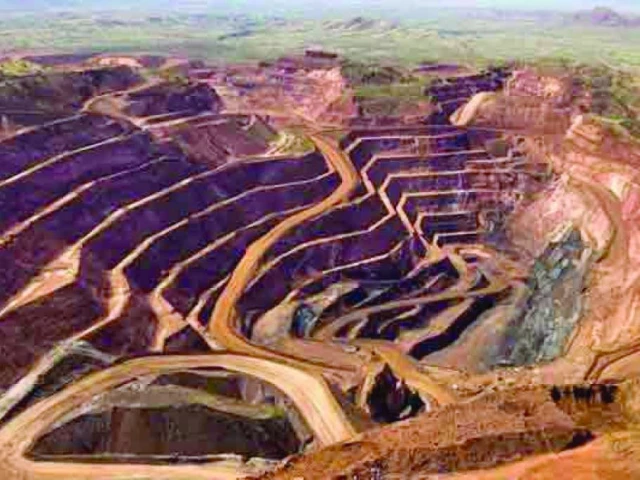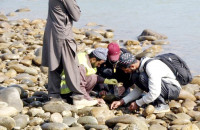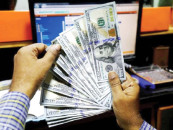Reko Diq project set to get $3.5b loan
US Exim, global banks line up as company vows to complete 1st phase in 3 years

Petroleum Minister Ali Pervaiz Malik said on Thursday that the Reko Diq Mining Company was very near to achieve financial close with $3.5 billion loans lined up, as the company's local executive vowed to complete the $7 billion first phase of the project in the next three years.
The Reko Diq Mining Company is very close to achieving the financial close and raising $3.5 billion in debt, said Malik while speaking about prospects of Pakistan's mining sector during a seminar organised by the Pakistan Business Council (PBC).
The minister's statement came days after the US Export-Import (Exim) Bank board approved a $1.25 billion loan for the Reko Diq mine, as part of the US Congress's larger plan to invest $100 billion to secure global mineral supplies.
The total cost of the project is estimated at $7.7 billion, which includes $3.5 billion in debt from 11 international banks and organisations.
Zarar Jamali, Country Manager of Reko Diq Mining Company, said that the $3.5 billion financing has been secured from 11 banks, including Japan, Canada and the United States. Jamali said that the first export shipment is targeted for the first quarter of 2029.
There have been high hopes that Reko Diq miners can solve Pakistan's external sector problems. But the petroleum minister watered down claims of $7 trillion worth of mineral reserves in Pakistan, saying that "$7 trillion is a presumed value, as it neither has been measured nor calculated". He cautioned against attaching so many hopes to the $7 trillion figure and said that it takes about a decade to complete one mining project.
Malik said that the government spent the past year standardising the legal, regulatory and safety regulations in the light of feedback received from foreign investors.
Pakistan has already revised upwards the cost of the first phase of the Reko Diq copper and gold mines project for the second time in six months. The cost has now jumped 79% to $7.7 billion from the initial estimate due to the higher cost of loans being taken for the project and to offset any future price shocks.
Zarar Jamali said that the first phase of construction at Reko Diq mines is going on with an estimated investment of $5.5 billion to $6 billion.
While commenting on the Barrick Company split, Jamali said that Barrick has not performed as well as other mining companies. "Barrick has given a statement that it would stay here. We have secured the financing and we are going ahead with the project," said the local executive.
Barrick's board has recently raised the possibility of splitting the company into two entities: one focused on North American assets and the other on assets in Africa and Asia.
Barrick's interim chief executive officer also recently stated that the company remained committed to its Reko Diq copper project in Pakistan.
Muhammad Ali Tabba of the Lucky Group emphasised the need to set up smelting plants of copper and gold in Pakistan, brushing aside the perception that these facilities were unviable. He spoke against exporting raw materials and called for exporting only refined value-added products.
Millions of tonnes of raw material should not be exported, which will be more hazardous and involve security concerns too, said Tabba.
Ali Pervaiz Malik said that to run a smelter on a sustainable basis, there is a need for continued supplies of raw material.
Pakistan is on the verge of operationalising two mining projects – about $8 billion worth of Reko Diq and over $1.5 billion worth of Siadiq project, said Shamsuddin Sheikh, Chief Executive Officer of National Resources Limited. He said that both of these projects are expected to begin operations before the end of 2030.
Col Hamid Ashraf, Adviser to the Geological Survey of Pakistan, said that there was a need to give fiscal incentives for mining to tap the $7 trillion reserves and set a better internal rate of return on investment.
The petroleum minister said that it would be difficult to give fiscal incentives under the IMF programme. In her closing remarks, Dr Zeelaf Munir, Chairperson PBC, stated, "Pakistan's economic future depends on resilience, reform and responsible partnership. No institution can deliver progress alone; all the stakeholders need to believe in business."























COMMENTS
Comments are moderated and generally will be posted if they are on-topic and not abusive.
For more information, please see our Comments FAQ